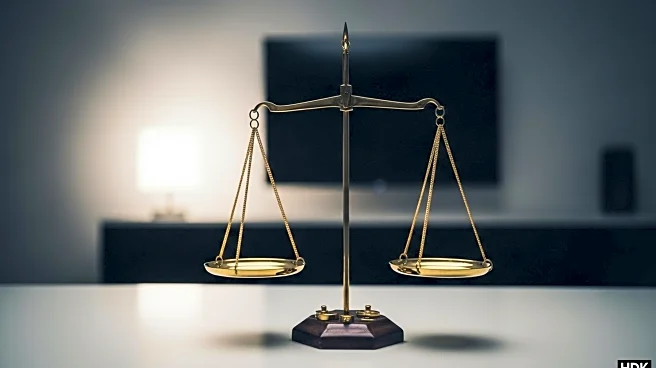What's Happening?
Todd Nepola has filed a federal lawsuit against Bravo, NBCUniversal, and producers, seeking $11 million in damages. The lawsuit, filed on October 7, 2025, accuses the defendants of defamation and unauthorized use of Nepola's name and likeness across two seasons of 'The Real Housewives of Miami' (RHOM). Nepola claims that the defamatory portrayals have damaged his business reputation in Miami and caused emotional distress. This legal action is part of a broader trend of high-profile media defamation claims, which could test the liability of producers for manufactured storylines in reality TV.
Why It's Important?
The lawsuit could have significant implications for the reality TV industry, particularly concerning consent and editorial practices. If Nepola's case succeeds, it may lead to stricter scrutiny on releases, consent language, and the repurposing of archived footage. Networks might be compelled to implement clearer waivers and editing guardrails to avoid costly jury verdicts. This could increase production costs and legal reviews, potentially altering how reality TV is produced and perceived. The case highlights the ongoing debate between critics who argue that producers manufacture drama and defenders who view editing as protected storytelling.
What's Next?
Should the court side with Nepola, networks may need to revise consent forms and reduce manipulative edits, impacting production costs and legal strategies. This could lead to less manufactured drama in reality TV, as producers might opt for longer waivers to mitigate risks. The outcome of this lawsuit could set a precedent for future defamation claims in the industry, prompting more suits from former partners and peripheral figures. Advertisers may also react to the increased reputational risks associated with reality TV.
Beyond the Headlines
The lawsuit underscores the ethical and legal challenges faced by reality TV producers in balancing storytelling with factual representation. It raises questions about the extent to which reality TV can manipulate narratives without crossing into defamation. The case could lead to a cultural shift in how reality TV is consumed, with audiences becoming more critical of the authenticity of the content they watch.









